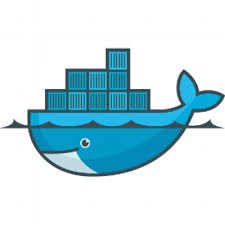Containerized software company Docker has announced new enterprise and orchestration features which allows applications based on multiple containers, at its European conference in Amsterdam. It also has a deal with IBM to sell Docker Hub and other tools.
Docker delivers applications in lightweight packages called containers, and has announced that these can now be combined easily to make more complex applications, thanks to technologies which allow containers to be clustered, and assembled, regardless of the underlying hardware which is supporting them. There is also an enterprise hub - a private library where companies can keep their own Docker-based services within their own ecosystem.
These technologies are still only alpha releases, but Docker vice president of marketing David Messina told DatacenterDynamics that Docker now has thousands of developers, and millions of users, with more than 500 - a capacity crowd - showing up for the second DockerCon, which is happening now (5 and 6 December) in Amsterdam.
Docker for business
Docker has supported an enterprise hub before, but only hosted on Docker’s own servers. “Docker Hub Enterprise takes the goodness in the Docker Hub hosted repository, and lets users build their my own differentiated intellectual property,” said Messina. This should encourage users to build things which they will rely on and which differentiate their business, he said.
Orchestration is something which Docker users have wanted for some time, said Messina, and Docker’s implementation is “100 percent portable with an open data UI and an incredible API,” he said. The services - though still only an alpha release - will work out of the box (“batteries included,”) he said: “but you can swap those out for other batteries”.
The Orchestration services consist of Docker Machine, Docker Swarm and Docker Compose. Machine is a service which can put the underlying Docker Engine on any system and make its resources available to be quickly provisioned with Docker containers. Swarm allows clusters, by creating a resource pool for Docker containers and handling scheduling. Compose allows an application to be constructed form multiple Docker containers.
The IBM deal marks another endorsement of Docker, following the news the Microsoft will include the technology in future versions of Windows. But the atmosphere at DockerCon was slightly soured by the war of words surrounding CoreOS, a startup with a container-centric Linux operating system, which has previously supported Docker, but has now announced its own container system, Rocket.
Docker recently fixed a security issue with its software, but CoreOS CEO Alex Polvi said “We cannot in good faith continue to support Docker’s broken security model without addressing these issues”. Docker creator Solomon Hykes hit back saying he was “disappointed” with Polvi’s behavior and language.

